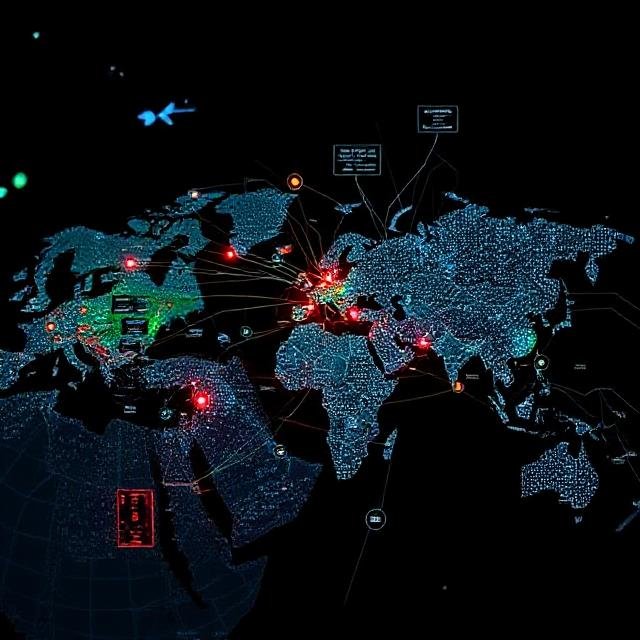Meta Dismantles Cross-Border Disinformation Networks from Three Nations in Early 2025
Meta announced on Thursday that it successfully identified and eliminated three sophisticated foreign influence campaigns launched from Iran, China, and Romania during the opening quarter of 2025.

Meta announced on Thursday that it successfully identified and eliminated three sophisticated foreign influence campaigns launched from Iran, China, and Romania during the opening quarter of 2025.
"We identified and dismantled these operations before they could establish genuine followings on our platforms," the technology company stated in its latest quarterly report on adversarial threats.
Romanian Operation Targets Electoral Discourse
The company uncovered a Romanian-based network comprising 658 Facebook profiles, 14 Facebook Pages, and two Instagram accounts that spread across multiple social media platforms, including Meta's services, TikTok, X, and YouTube. One particular page had accumulated approximately 18,300 followers.
The operatives utilized fabricated accounts to control Facebook Pages, redirect users to external websites, and engage with content from political figures and media organizations. These fake profiles presented themselves as Romanian residents while sharing seemingly benign content about sports, tourism, and local happenings.
Despite most comments failing to generate authentic user engagement, Meta observed that these fictional personas maintained a cross-platform presence to enhance their perceived legitimacy.
"This operation demonstrated sophisticated operational security measures to hide its origins and coordination, including the use of proxy server infrastructure," the company explained. "The individuals orchestrating this effort primarily posted Romanian-language content about current affairs and news, particularly regarding Romanian elections."
Iranian Network Focuses on Azeri Communities
The second disrupted campaign originated from Iran and specifically targeted Azeri-speaking populations in Azerbaijan and Turkey through Meta's platforms, X, and YouTube. This network included 17 Facebook accounts, 22 Facebook Pages, and 21 Instagram profiles.
The fabricated accounts served multiple purposes: creating content within Groups, managing Pages, and artificially boosting engagement through self-commenting. Many profiles impersonated female journalists and pro-Palestinian advocates.
"The campaign exploited trending hashtags such as #palestine, #gaza, #starbucks, and #instagram as part of their spam-like strategies to inject themselves into ongoing public conversations," Meta reported.
"The handlers published Azeri-language content covering current events and news, including the Paris Olympics, Israel's 2024 communication device attacks, calls for American brand boycotts, and condemnations of the United States, President Biden, and Israeli military actions in Gaza."
Meta linked this activity to Storm-2035, a recognized threat group that Microsoft identified in August 2024 as an Iranian operation targeting American voter demographics with divisive messaging about presidential candidates, LGBTQ issues, and the Israel-Hamas war.
Previously, OpenAI disclosed that it had terminated ChatGPT accounts created by Storm-2035 after discovering attempts to weaponize the AI chatbot for social media content generation.
Chinese Campaign Spans Multiple Asian Markets
Finally, Meta eliminated 157 Facebook accounts, 19 Pages, one Group, and 17 Instagram accounts that targeted audiences across Myanmar, Taiwan, and Japan. The operation's orchestrators employed artificial intelligence to generate profile photographs and maintained extensive "account farms" for creating new fraudulent profiles.
The Chinese-linked activity consisted of three distinct clusters, each redistributing both original and third-party content in English, Burmese, Mandarin, and Japanese about regional news and current events.
"Regarding Myanmar, they promoted content calling for an end to the ongoing civil conflict, condemned resistance movements, and expressed support for the military government," the company detailed.
"In Japan, the campaign attacked the Japanese government and its defense partnerships with the United States. For Taiwan, they spread allegations of corruption among Taiwanese political and military leadership, and operated Pages purporting to feature anonymous submissions -- likely attempting to simulate authentic public discourse."
This coordinated takedown demonstrates Meta's ongoing efforts to combat state-sponsored disinformation campaigns that exploit social media platforms to influence foreign populations and democratic processes.














